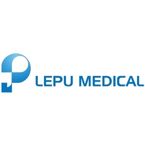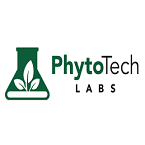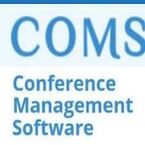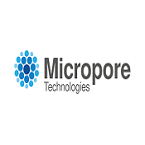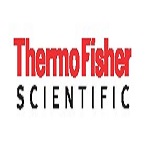Sessions and Tracks
Track 01: Gastrointestinal Disorders and Treatment
Gastrointestinal disorders include a broad spectrum of conditions that affect the digestive tract, such as the esophagus, stomach, intestines, liver, pancreas, and gallbladder. These conditions may be acute or chronic, functional or structural, ranging from indigestion to gastrointestinal cancers. The goal of this session is to provide an overview of current diagnostic techniques, including colonoscopy, capsule endoscopy, and imaging, alongside emerging treatment options. Pharmacologic interventions like proton pump inhibitors, antispasmodics, and biologics are widely used, while dietary management such as low fermentable carbohydrate diets or gluten-free approaches have also shown efficacy. Psychological strategies and gut-brain interaction studies are increasingly recognized in managing functional conditions like irritable bowel syndrome. The role of microbiome research continues to grow in importance, offering insight into disease mechanisms and potential therapies. This session will highlight the latest advancements in endoscopic and surgical procedures and integrate multidisciplinary strategies for optimal care.
Key Topics:
-
Pathophysiology of gastrointestinal conditions
-
Functional and inflammatory gastrointestinal diseases
-
Diagnostic approaches including imaging and endoscopy
-
Pharmacologic and dietary therapies
-
Surgical and endoscopic advancements
-
Role of gut-brain interaction
-
Psychological and microbiome-focused therapies
Track 02. Liver Diseases and Hepatic Disorders
Liver diseases represent a significant global health burden, encompassing a range of acute and chronic conditions that affect liver function. These include hepatitis (viral, alcoholic, or autoimmune), cirrhosis, fatty liver disease, liver fibrosis, and hepatocellular carcinoma. The liver’s central role in metabolism, detoxification, and bile production means that any impairment can have systemic consequences.
The increasing prevalence of metabolic-associated fatty liver disease and non-alcoholic steatohepatitis is linked to rising rates of obesity and diabetes. Hepatitis B and C infections continue to pose major challenges, although antiviral therapies have improved outcomes. Liver transplantation remains the definitive treatment for end-stage liver disease, but ongoing research into regenerative medicine and targeted therapies offers hope for non-invasive alternatives.
Key Topics:
-
Viral, alcoholic, and autoimmune hepatitis
-
Cirrhosis and liver fibrosis
-
Fatty liver disease and metabolic dysfunction
-
Liver function diagnostics
-
Advances in hepatocellular carcinoma treatment
-
Transplantation and regenerative therapies
-
Public health strategies and vaccination programs
Track 03. Inflammatory Bowel Diseases
Inflammatory bowel diseases are chronic conditions involving inflammation of the digestive tract, primarily ulcerative colitis and Crohn’s disease. These disorders cause significant gastrointestinal symptoms, including abdominal pain, persistent diarrhea, fatigue, weight loss, and rectal bleeding. They can also result in complications beyond the gut, affecting the skin, eyes, joints, and liver.
Although the exact causes are not fully understood, a combination of genetic predisposition, immune system dysfunction, environmental triggers, and gut microbiota imbalance is believed to play a role. Diagnosis typically involves a combination of endoscopy, biopsy, imaging studies, and laboratory tests to assess inflammation and rule out infections.
Treatment focuses on reducing inflammation and maintaining long-term remission. Options include anti-inflammatory medications, corticosteroids, immunosuppressants, biologic therapies targeting specific immune pathways, and nutritional support. In some cases, surgical intervention is necessary when medical therapies fail.
This session highlights current research into the pathogenesis of inflammatory bowel diseases, emerging treatment strategies, and the importance of a multidisciplinary approach in patient care.
Key Topics:
-
Differences between ulcerative colitis and Crohn’s disease
-
Immunologic and environmental factors
-
Role of gut microbiota in inflammation
-
Biologic therapies and immunomodulators
-
Surgical management in advanced cases
-
Nutritional support and dietary therapy
-
Patient-centered care and long-term monitoring
Pediatric gastroenterology and nutrition focus on digestive system disorders in infants, children, and adolescents. These include common conditions such as gastroesophageal reflux, constipation, and lactose intolerance, as well as complex disorders like celiac disease, eosinophilic esophagitis, and pediatric inflammatory bowel disease. Proper nutrition plays a crucial role in growth, development, and recovery from gastrointestinal illnesses during childhood.
Diagnosis often requires age-appropriate techniques including imaging, endoscopy, and stool analysis. Early recognition and intervention are essential, especially in conditions affecting nutrient absorption, which can lead to developmental delays and failure to thrive. Treatment includes dietary management, pharmacologic therapies, and in some cases, enteral or parenteral nutrition.
This session emphasizes the latest advancements in pediatric gastrointestinal care, nutritional strategies, and personalized treatments for young patients.
Key Topics:
-
Digestive disorders in infants and children
-
Nutritional deficiencies and malabsorption
-
Food allergies and intolerances
-
Pediatric inflammatory bowel disease
-
Celiac disease and gluten-related disorders
-
Nutritional support in chronic illness
-
Growth monitoring and development tracking
The gut microbiota consists of trillions of microorganisms that reside in the digestive tract and play a vital role in digestion, immunity, and overall health. Disruption in this microbial balance—termed dysbiosis—has been linked to various gastrointestinal diseases such as irritable bowel syndrome, inflammatory bowel disease, obesity, and even neurological disorders.
This session explores how the gut microbiota influences gastrointestinal function, the emerging concept of the gut-brain axis, and the potential of microbiota-targeted therapies. Techniques like fecal microbiota transplantation, probiotics, prebiotics, and dietary modifications are under investigation for restoring microbial balance.
Participants will gain insights into cutting-edge research on microbiome analysis and the development of personalized therapies to support digestive health.
Key Topics:
-
Composition and role of gut microbiota
-
Gut-brain communication pathways
-
Dysbiosis in disease development
-
Probiotics, prebiotics, and symbiotics
-
Fecal microbiota transplantation
-
Diet and microbiota modulation
-
Microbiome-based diagnostic tools
Liver and pancreatic disorders encompass a wide spectrum of diseases including hepatitis, cirrhosis, fatty liver disease, pancreatitis, and cancers of the liver and pancreas. These organs are essential for digestion, detoxification, and metabolic regulation. Liver diseases may arise from infections, alcohol abuse, metabolic syndromes, or autoimmune reactions, while pancreatic issues are often due to gallstones, alcohol, or genetic factors.
This session covers the mechanisms, symptoms, and management of these complex disorders. Diagnostic approaches such as liver function tests, imaging studies, and biopsy are essential for accurate evaluation. Treatments range from lifestyle interventions and medications to surgical procedures and transplantation.
Current research focuses on novel therapies like antiviral agents, antifibrotic drugs, and regenerative medicine for liver and pancreatic repair.
Key Topics:
-
Hepatitis and cirrhosis
-
Fatty liver disease and metabolic syndrome
-
Acute and chronic pancreatitis
-
Liver and pancreatic cancers
-
Diagnostic imaging and biopsy techniques
-
Antiviral and antifibrotic treatments
-
Surgical and transplant options
Gastrointestinal oncology focuses on the diagnosis and treatment of cancers affecting the digestive tract, including the esophagus, stomach, colon, liver, pancreas, and rectum. These cancers are among the most common and deadly worldwide, often diagnosed at advanced stages due to subtle early symptoms. Tumor biology plays a central role in understanding how these cancers grow, invade, and resist therapy.
This session explores genetic and molecular markers, tumor microenvironment, and personalized medicine in gastrointestinal cancers. Advances in screening techniques, such as colonoscopy and endoscopic ultrasound, help in early detection, while targeted therapies and immunotherapy are reshaping treatment strategies.
The discussion will highlight innovative research on cancer stem cells, resistance mechanisms, and precision oncology approaches aimed at improving survival and quality of life for patients.
Key Topics:
-
Colorectal, gastric, and pancreatic cancers
-
Hepatocellular carcinoma and cholangiocarcinoma
-
Tumor microenvironment and metastasis
-
Molecular diagnostics and biomarkers
-
Targeted therapies and immunotherapy
-
Endoscopic and surgical interventions
-
Cancer screening and prevention
Gastrointestinal infections, caused by viruses, bacteria, and parasites, are leading causes of global morbidity and mortality, particularly in children and immunocompromised individuals. Common pathogens include norovirus, rotavirus, Helicobacter pylori, Salmonella, and Giardia. These infections can lead to acute gastroenteritis, chronic inflammation, ulcers, and even cancer.
The body’s immune system plays a vital role in fighting gastrointestinal pathogens, and understanding host-pathogen interactions is essential for developing vaccines and treatments. Moreover, the gut-associated lymphoid tissue (GALT) is a critical component of immune defense.
This session discusses mechanisms of infection, immune response, emerging antibiotic resistance, and advances in diagnostic and therapeutic strategies, including vaccines, probiotics, and antimicrobial stewardship.
Key Topics:
-
Viral, bacterial, and parasitic infections
-
Helicobacter pylori and gastric diseases
-
Gut-associated immune responses
-
Diarrheal diseases and dehydration
-
Diagnostic tools: PCR, stool cultures
-
Antibiotic resistance and treatment protocols
-
Preventive measures and vaccination
Endoscopy has revolutionized the diagnosis and treatment of gastrointestinal diseases. Techniques like upper endoscopy, colonoscopy, endoscopic ultrasound, and capsule endoscopy allow direct visualization and biopsy of the GI tract, enabling early diagnosis of conditions like ulcers, cancers, and polyps. Minimally invasive procedures such as endoscopic mucosal resection (EMR) and endoscopic submucosal dissection (ESD) are now standard for treating select early-stage tumors.
This session delves into technological innovations in diagnostic and therapeutic endoscopy, the use of artificial intelligence in lesion detection, and advancements in robotic-assisted procedures. Endoscopy is increasingly used not only for visualization but also for interventions such as hemostasis, stent placement, and bariatric therapies.
It is crucial for clinicians to stay updated with evolving techniques to enhance outcomes and minimize complications.
Key Topics:
-
Upper GI endoscopy and colonoscopy
-
Capsule endoscopy and double-balloon enteroscopy
-
Endoscopic mucosal and submucosal resection
-
AI in endoscopic imaging
-
Therapeutic procedures: stents, clips, injections
-
Complication management and sedation techniques
-
Training and skill development in endoscopy
The gut microbiota is a diverse community of trillions of microorganisms that play a pivotal role in human health and disease. Beyond aiding digestion and nutrient absorption, they influence metabolic functions, immunity, and even behavior. Imbalances in the gut microbial community, known as dysbiosis, have been linked to metabolic disorders such as obesity, type 2 diabetes, and non-alcoholic fatty liver disease.
This session highlights the latest research on how gut microbes affect host metabolism, including the production of short-chain fatty acids, bile acid metabolism, and hormonal regulation. Interventions such as probiotics, prebiotics, dietary changes, and fecal microbiota transplantation are being explored to restore microbial balance and treat metabolic conditions.
Understanding gut microbiota opens new avenues in preventive and therapeutic strategies, especially in the era of personalized nutrition and medicine.
Key Topics:
-
Gut microbiota composition and function
-
Dysbiosis and metabolic syndrome
-
Microbiota in obesity and diabetes
-
Prebiotics, probiotics, and synbiotics
-
Personalized nutrition and microbiome
-
Fecal microbiota transplantation
-
Microbial metabolites and metabolic pathways
Inflammatory bowel disease (IBD), including Crohn’s disease and ulcerative colitis, is characterized by chronic inflammation of the gastrointestinal tract. While the exact cause remains unclear, a combination of genetic susceptibility, immune dysregulation, environmental triggers, and microbial imbalance is implicated.
This session focuses on the evolving landscape of IBD pathogenesis, diagnostic biomarkers, and treatment strategies. It includes conventional therapies like aminosalicylates, corticosteroids, and immunosuppressants, as well as biologics targeting tumor necrosis factor-alpha, integrins, and interleukins. Emerging therapies like small molecules (JAK inhibitors) and microbiome modulation also offer hope.
Advances in imaging, endoscopic assessment, and personalized medicine are improving disease monitoring and patient outcomes.
Key Topics:
-
Crohn’s disease and ulcerative colitis
-
Genetic and environmental factors
-
Immune system dysregulation
-
Biologics and small molecule therapies
-
Diagnostic biomarkers and imaging
-
Nutritional support in IBD
-
Microbiome-immune interactions
Hepatology encompasses the study of liver functions and diseases, including hepatitis, cirrhosis, fatty liver disease, and hepatocellular carcinoma. Liver diseases often progress silently until advanced stages, making early detection and treatment essential.
This session will explore the epidemiology and management of viral hepatitis (B, C, and E), alcoholic liver disease, and non-alcoholic fatty liver disease, which is now emerging as a major global health issue. Advancements in antiviral therapies, fibrosis assessment, and biomarkers have improved outcomes. Liver transplantation remains the only cure for end-stage liver failure and certain liver cancers.
With increasing organ demand and limited donors, innovative strategies like living donor transplantation, organ preservation, and artificial liver support systems are gaining attention.
Key Topics:
-
Hepatitis B, C, and E management
-
Non-alcoholic fatty liver and NASH
-
Cirrhosis and liver failure
-
Liver cancer: diagnosis and treatment
-
Fibrosis scoring and imaging techniques
-
Liver transplantation and donor challenges
-
Immunosuppression and post-transplant care
Pediatric and adolescent nutrition lays the foundation for lifelong health and well-being. During childhood and adolescence, rapid growth and development increase nutritional requirements, making balanced and adequate intake crucial. Poor nutrition during this phase can result in stunted growth, developmental delays, obesity, and increased risk of chronic diseases in adulthood.
This topic explores the specific dietary needs of infants, children, and adolescents. It also examines breastfeeding practices, weaning strategies, school-based nutrition programs, and the role of micronutrients in cognitive development. Nutritional disorders such as iron-deficiency anemia, vitamin D deficiency, and eating disorders like anorexia nervosa are also addressed. Cultural influences, food insecurity, and screen time are considered in assessing dietary habits and lifestyle patterns.
Ensuring proper nutrition during early life stages is a global health priority that influences academic performance, immunity, and future health outcomes.
Key Topics:
-
Nutritional needs during childhood and adolescence
-
Breastfeeding and complementary feeding
-
Pediatric obesity and undernutrition
-
Micronutrient deficiencies and supplementation
-
Eating behavior and food preferences
-
School nutrition programs and policies
-
Adolescent eating disorders
As the global population ages, nutrition in the elderly becomes a pressing public health concern. Aging is associated with physiological changes such as decreased metabolic rate, reduced appetite, altered taste and smell, and impaired nutrient absorption, which increase the risk of malnutrition.
This topic delves into the nutritional challenges faced by older adults, including sarcopenia (loss of muscle mass), osteoporosis, frailty, and cognitive decline. It emphasizes the role of nutrition in disease prevention, functional independence, and quality of life in aging populations. Nutritional screening tools, supplementation strategies (e.g., vitamin D, calcium, omega-3), and the management of chronic diseases such as diabetes and cardiovascular conditions in older adults are also explored.
Geriatric nutrition supports healthy aging and helps reduce healthcare burdens by preventing hospitalization and institutionalization.
Key Topics:
-
Physiological changes affecting nutrition in aging
-
Malnutrition and nutrient deficiencies in the elderly
-
Sarcopenia and frailty prevention
-
Cognitive health and nutrition
-
Bone health and micronutrient support
-
Managing chronic disease with diet
-
Nutritional screening and interventions
Plant-based nutrition is gaining attention for its health benefits and its potential to reduce environmental impact. Diets rich in vegetables, fruits, whole grains, legumes, nuts, and seeds support cardiovascular health, diabetes prevention, and weight management while also reducing the carbon footprint of food production.
This topic explores the science behind plant-based eating patterns, including vegetarian and vegan diets. It discusses how to ensure nutritional adequacy by focusing on protein quality, iron, vitamin B12, calcium, and omega-3 fatty acids. The health outcomes of shifting to plant-based diets, such as reduced inflammation and improved metabolic markers, are evaluated alongside ecological concerns like land use, greenhouse gas emissions, and water conservation.
Plant-based diets represent a strategic intersection between public health nutrition and environmental sustainability.
Key Topics:
-
Health benefits of plant-based diets
-
Vegetarian and vegan nutritional planning
-
Key nutrients: B12, iron, protein, calcium
-
Chronic disease prevention through plant foods
-
Environmental impact of animal-based vs. plant-based diets
-
Food system sustainability and global policies
-
Culturally adaptable plant-based practices
The human gut microbiota has emerged as a vital component in maintaining digestive health and overall metabolic function. Composed of trillions of microorganisms, these microbes influence digestion, nutrient absorption, immune system regulation, and even mood through the gut-brain axis. Disruptions in microbiota composition, known as dysbiosis, are linked to various conditions such as inflammatory bowel disease, irritable bowel syndrome, obesity, diabetes, and colorectal cancer.
This session will explore the latest discoveries in gut microbiome research and its impact on digestive diseases. Topics include the use of probiotics and prebiotics, dietary interventions to modulate microbiota, and fecal microbiota transplantation (FMT) as a treatment for Clostridioides difficile infection and beyond. The potential of microbiota-targeted therapies as a non-invasive and personalized approach to treatment is a growing focus in the field.
Key Topics:
-
Gut microbiome composition and function
-
Dysbiosis and gastrointestinal disorders
-
Probiotic and prebiotic therapy
-
Fecal microbiota transplantation (FMT)
-
Gut-brain axis and metabolic health
-
Microbiome and immune regulation
-
Impact of diet on microbiota
-
Microbiota in colorectal cancer
-
Personalized microbiome therapies
-
Microbiota and antibiotic resistance
Digestive system cancers encompass malignancies of the esophagus, stomach, liver, pancreas, colon, and rectum. These cancers often progress silently, making early diagnosis challenging. Colorectal and pancreatic cancers, in particular, carry high morbidity and mortality rates due to late detection and limited treatment options. Advancements in imaging technologies, biomarker discovery, molecular profiling, and personalized therapies have improved diagnostic precision and treatment outcomes.
This session delves into the epidemiology, risk factors, and genetic predispositions for digestive cancers. It will cover novel treatment modalities such as immunotherapy, targeted therapy, and precision oncology. Emphasis will also be placed on cancer screening programs, surveillance strategies for high-risk populations, and the role of diet and lifestyle in prevention.
Key Topics:
-
Colorectal, gastric, and pancreatic cancers
-
Cancer screening and early detection
-
Tumor markers and molecular diagnostics
-
Role of genetics in cancer susceptibility
-
Immunotherapy and targeted treatments
-
Surgical approaches and outcomes
-
Chemotherapy and radiotherapy updates
-
Lifestyle risk factors and prevention
-
Survivorship and palliative care
-
Emerging clinical trials and innovations
Track 18. Peptic Ulcer and Acid-related Disorders
Peptic ulcer disease and other acid-related disorders like gastroesophageal reflux disease (GERD) affect millions worldwide, leading to significant morbidity and healthcare costs. These conditions arise from the imbalance between gastric acid secretion and mucosal protection. Helicobacter pylori infection and non-steroidal anti-inflammatory drugs (NSAIDs) are primary causes of peptic ulcers, while lifestyle factors often contribute to GERD.
This session examines the pathogenesis, diagnosis, and management of peptic ulcers and GERD. Topics include advancements in acid suppression therapy, the role of endoscopy in diagnosis, eradication therapies for Helicobacter pylori, and emerging concerns such as treatment-resistant strains. Long-term complications like Barrett’s esophagus and ulcer perforation will also be addressed.
Key Topics:
-
Pathophysiology of acid-related disorders
-
Helicobacter pylori infection and treatment
-
GERD: diagnosis and lifestyle management
-
Proton pump inhibitors and new therapies
-
Endoscopy in ulcer evaluation
-
Complications: bleeding and perforation
-
Drug-resistant H. pylori strains
-
Barrett’s esophagus and cancer risk
-
NSAID-induced ulcers
-
Non-pharmacologic treatment strategies
Track 19. Non-Alcoholic Fatty Liver Disease
Non-alcoholic fatty liver disease has become the most common liver disorder globally, closely associated with obesity, insulin resistance, and type 2 diabetes. NAFLD encompasses a spectrum from simple steatosis to non-alcoholic steatohepatitis, which can progress to cirrhosis and hepatocellular carcinoma. The disease is largely asymptomatic in early stages, making awareness and screening crucial.
This session will focus on the mechanisms driving, its diagnostic criteria, and therapeutic strategies. Lifestyle interventions, including diet and physical activity, remain the cornerstone of treatment. Additionally, pharmacologic approaches under development, such as insulin sensitizers, lipid-lowering agents, and anti-inflammatory drugs, offer promise. The session will also highlight the need for global awareness and policy changes to tackle this silent epidemic.
Key Topics:
-
Epidemiology and pathogenesis of NAFLD
-
Diagnostic imaging and liver biopsy
-
Role of obesity and insulin resistance
-
Progression to NASH and cirrhosis
-
Lifestyle and dietary interventions
-
Emerging pharmacologic therapies
-
Cardiovascular risks and comorbidities
-
NAFLD in pediatric populations
-
Fibrosis scoring and monitoring
-
Public health implications and policies
Track 20. Diagnostic Biomarkers and Therapeutic Targets in Digestive Diseases
The identification of diagnostic biomarkers and novel therapeutic targets has become a transformative approach in the management of digestive diseases. Biomarkers such as inflammatory cytokines, specific genetic mutations, gut microbial profiles, and circulating microRNAs offer early detection, predict disease progression, and monitor treatment response in conditions like inflammatory bowel disease, colorectal cancer, and liver cirrhosis. Therapeutic targeting, on the other hand, involves identifying molecular mechanisms and cellular pathways that drive disease, which can then be inhibited or modified using precision medicine approaches.
This area is especially critical in the era of personalized medicine, where understanding individual variability in genetics, environment, and lifestyle can inform tailored treatment plans. Advances in next-generation sequencing, proteomics, metabolomics, and bioinformatics have accelerated biomarker discovery and validation. Molecular therapies, including monoclonal antibodies, kinase inhibitors, and gene editing tools, have already shown promise in clinical trials. Moreover, non-invasive biomarker-based screening tests are replacing more invasive diagnostic procedures, increasing patient compliance and early intervention.
Key Topics:
-
Biomarker discovery and validation in gastrointestinal health
-
Role of genetic and epigenetic markers in digestive disorders
-
Gut microbiota as a diagnostic and therapeutic tool
-
Liquid biopsy and non-invasive testing methods
-
Targeted therapies in liver, pancreatic, and colorectal diseases
-
Emerging technologies in biomarker-based diagnostics
-
Precision medicine and individualized treatment strategies
-
Challenges in translating biomarker research to clinical practice
-
Regulatory and ethical considerations in biomarker implementation
-
Future trends in biomarker-guided digestive disease care











